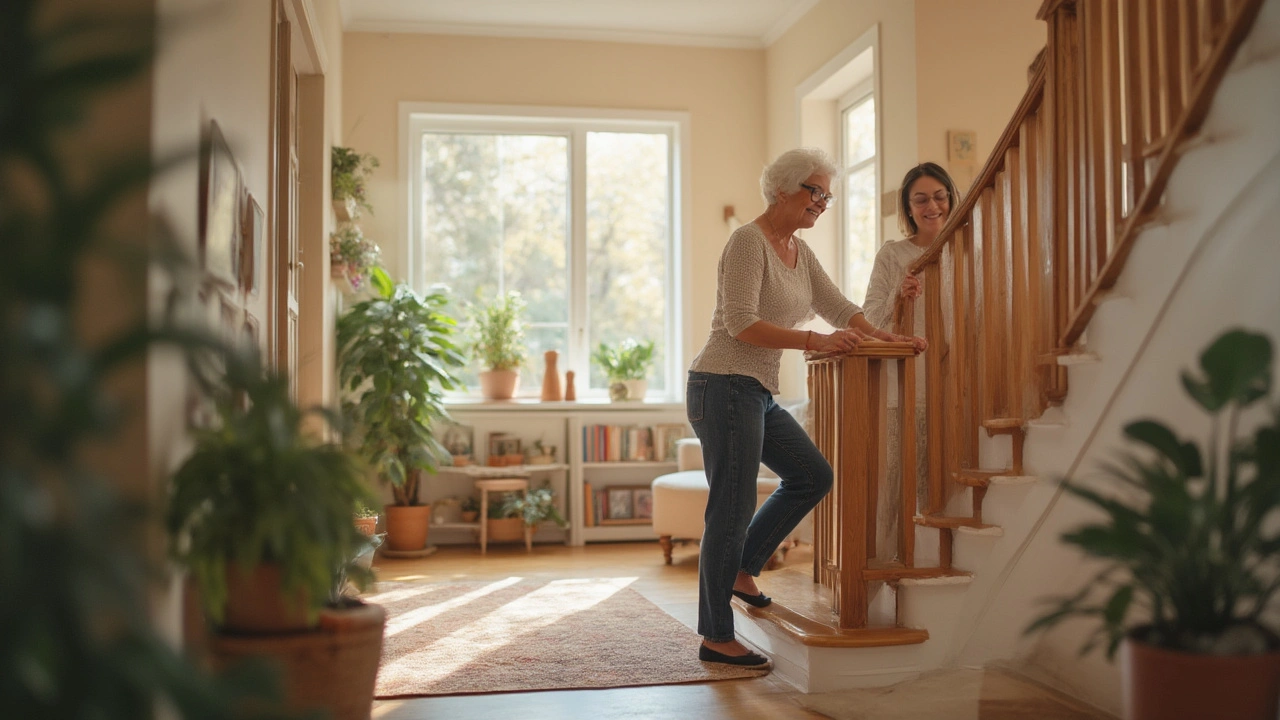Fall Prevention Tips for Seniors: Simple Steps to Stay Safe
Falls are a leading cause of injury in older adults, but many of them can be avoided with a few practical moves. Below you’ll find easy‑to‑follow advice that blends medication checks, daily habits, and home tweaks to keep you steady on your feet.
Check Your Meds
The first thing to look at is what’s in your medicine cabinet. Some prescriptions and over‑the‑counter drugs can make you feel light‑headed or wobble. Common culprits include benzodiazepines (sleep aids), antihistamines, certain blood pressure pills, and even some pain relievers. Ask your doctor or pharmacist if any of your meds could be raising your fall risk, and see if a lower dose or an alternative works just as well.
Don’t forget supplements. Vitamin D and calcium are great for bone health, but too much calcium without proper vitamin D can sometimes cause muscle cramping. Always tell your healthcare team about any herbs, teas, or vitamins you take so they can spot possible interactions.
Simple Lifestyle Changes
Next up: everyday habits that boost balance. Start with a short walk or a seated leg‑raise routine each morning. Even five minutes of gentle stretching can improve circulation and keep muscles engaged. If you’re up for it, a basic tai‑chi or yoga class can work wonders for coordination.
Vision matters more than you think. A quick eye‑exam can spot cataracts or glaucoma that blur edges and make stairs risky. Same goes for hearing—if you can’t hear a hallway alarm, that’s a hidden danger.
Footwear deserves a shout‑out. Slip‑on shoes or slippers with smooth soles may feel comfy, but they’re a slip hazard. Choose shoes with non‑skid treads, a snug heel, and good arch support. If you have orthotic inserts, keep them in good shape.
Home safety is a game‑changer. Install grab bars in the bathroom, add night‑lights in hallways, and keep clutter off the floor. A small rug can turn into a trampoline if it’s not secured, so use double‑sided tape or replace it with a low‑pile mat.
Hydration is often overlooked. Dehydration can cause dizziness, especially when you stand up quickly. Aim for a glass of water with each meal and keep a bottle handy throughout the day.
Lastly, stay connected. Talk to family or a caregiver about any recent near‑misses. They can help spot patterns—maybe a particular time of day or medication triggers the wobble—so you can adjust before a fall happens.
Putting these steps together creates a safety net that’s more than the sum of its parts. A quick med review, a few daily balance moves, and a safer living space can dramatically cut your fall risk and give you confidence to stay active.
Sprain Prevention and Care for Elderly: Tips for Safe Aging
- Natala Menezes
- |
- |
- 5
Sprains can cause trouble for seniors but many injuries are avoidable with smart habits, better home safety, and early care. Learn tips to help older adults stay active and safe.
View more